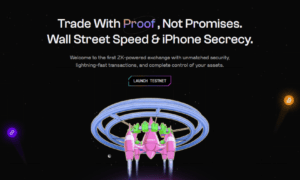Welcome to the exciting world of Lido Finance, a cutting-edge platform revolutionizing the way we stake our digital assets. Today, we invite you on an exclusive insider’s journey through the dynamic landscape of LDO Token – a key player in this groundbreaking ecosystem. From behind-the-scenes development to real-world implementations, we’ll uncover the multitude of benefits and use cases that make LDO an absolute game-changer for crypto enthusiasts and active investors alike. Buckle up as we dive deep into how Lido Finance is reshaping decentralized finance and unlocking endless possibilities for your digital wealth!
Introduction to Lido DAO and LDO token
Lido Finance is a decentralized autonomous organization (DAO) that operates on the Ethereum blockchain. It was launched in November 2020 with the aim of providing an easy and secure way for investors to access staking rewards from their ETH holdings. Lido DAO is powered by the LDO token, which plays a crucial role in the functioning of the platform.
The LDO token serves as a governance token for the Lido DAO. This means that holders of LDO have voting rights and can participate in important decisions regarding the future development and direction of the platform. These decisions may include changes to staking parameters, adding new assets to be staked, or introducing new features and partnerships.
Apart from its governance function, LDO also has other use cases within the Lido ecosystem. For instance, it acts as an incentive for network participants by rewarding them with additional tokens for their contributions to securing the Ethereum network. Stakers who provide liquidity to ETH2 through Lido receive newly minted ETH tokens as well as a portion of LDO tokens. This dual reward mechanism ensures that network validators are adequately compensated while also enhancing decentralization.
What is a Decentralized Autonomous Organization (DAO)?
A Decentralized Autonomous Organization (DAO) is a type of organization that operates on the principles of decentralization, autonomy, and blockchain technology. It is essentially a group of individuals who come together to achieve common goals without the need for central authority or intermediaries. The key feature of a DAO is its ability to function autonomously through smart contracts on a blockchain network.
One way to think about a DAO is as an internet-based democracy – it functions through consensus mechanisms rather than traditional voting processes and allows members to participate in decision-making processes directly. This means that every member has an equal say in how the organization is run and can vote on proposals that impact the future direction and operations of the DAO.
So why are DAOs gaining popularity and what makes them different from traditional organizations? Let’s explore some key benefits and use cases:
1. Decentralization: A DAO removes centralized control, which can often lead to corruption or inefficiencies. With no single point of failure, decision-making becomes more transparent, efficient, and democratic.
2. Autonomy: Once established, a DAO can operate autonomously with minimal human intervention. This reduces operational costs while maintaining transparency through open-source code.
3. Trustless System: By utilizing smart contracts executed on the blockchain network, all transactions within a DAO are recorded immutably, making it almost impossible for anyone to commit fraud or manipulate data within the system.
4. Reliability: The decentralized nature of a DAO ensures that even if one node fails or a member leaves, the organization can continue to operate without interruption.
5. Use Cases: DAOs have the potential to be used in a wide range of industries such as finance, governance, supply chain management, and more. For example, a healthcare DAO could provide healthcare services through peer-to-peer transactions between patients and providers, eliminating the need for intermediaries like insurance companies.
The Benefits of Lido DAO for Investors and Stakers
Lido DAO offers various benefits and advantages for both investors and stakers in the cryptocurrency space. As a decentralized autonomous organization, Lido DAO aims to provide efficient and secure ways for users to interact with the Ethereum 2.0 network and participate in its governance.
Here are some of the main benefits that Lido DAO brings to investors and stakers:
1. Staking Made Easy:
One of the primary benefits of Lido DAO is that it simplifies the complex process of staking on Ethereum 2.0. With traditional staking, users need a significant amount of technical knowledge, hardware, and time to successfully participate in securing the network. However, with Lido DAO’s liquid staking protocol, anyone can stake their ETH without owning any specialized equipment or having detailed technical expertise.
2. Increased Liquidity:
By using Lido DAO’s liquid staking protocol, investors do not have to lock up their ETH for an extended period as they typically would with traditional staking methods. This means that users can maintain liquidity while still earning rewards from their stake.
3. Diversification:
Lido DAO also allows investors to diversify their portfolios by offering them access to different liquid staked assets through its platform. Users can choose from several tokens such as wETH (wrapped Ether), BLS (stETH), and BNKR (aBOND). This provides opportunities for risk mitigation by spreading funds across various assets rather than solely relying on one investment option.
4. Lower Barriers to Entry:
Lido DAO eliminates the barriers to entry for staking, making it accessible to a broader set of investors and users. By removing the need for technical expertise and large amounts of capital, more people can participate in staking and earn rewards.
5. Passive Income:
Staking with Lido DAO allows users to earn passive income by simply holding their tokens in the protocol instead of actively trading or investing. This provides an additional source of income for both short-term and long-term holders.
6. Decentralized Governance:
As a decentralized autonomous organization, Lido DAO gives power to its community by allowing token holders to participate in its decision-making processes. This ensures that the protocol evolves according to the wishes of its users, creating a more inclusive and democratic environment.
7. Lower Risk:
By using Lido DAO’s liquid staking protocol, investors can minimize their risk exposure by delegating their assets to reputable validators that meet the highest standards of safety and security. This reduces the risk of losing funds due to human error or malicious actions.
Lido DAO provides an efficient and secure way for users to stake their ETH on Ethereum 2.0 while also offering various benefits such as increased liquidity, diversification, lower barriers to entry
Use Cases for the LDO Token
The LDO token, the native cryptocurrency of Lido Finance, has gained significant attention and popularity within the crypto community. With a current market capitalization of over $1 billion, the LDO token is currently one of the top-performing tokens in the decentralized finance (DeFi) space. But beyond its financial success, what are some practical use cases for this digital asset?
In this section, we will delve into the various use cases for the LDO token and explore how it adds value to both investors and users of the Lido Finance platform.
1. Staking on Ethereum 2.0
One of the primary use cases for the LDO token is staking on Ethereum 2.0 through the Lido Finance platform. As Ethereum transitions from a proof-of-work (PoW) to a more energy-efficient proof-of-stake (PoS) consensus mechanism, holders of ETH can stake their tokens and earn passive income in return.
Through Lido’s integration with Ethereum 2.0, users can deposit their ETH into a staking pool managed by professional validators to earn rewards without having to run a node themselves. These rewards are then distributed in proportion to each user’s stake in the pool.
To participate in staking on Ethereum 2.0 using Lido Finance, users need to hold at least 32 ETH or an equivalent amount of wrapped Ether (WETH). However, by holding just 16 ETH and lending/borrowing an additional 16 ETH from decentralized lending protocols like Aave or Compound, users can participate in staking and earn rewards while avoiding the high capital requirement.
2. Governance Rights
The LDO token also has governance rights within the Lido Finance ecosystem. Holders of the LDO token can vote on proposals and changes to the protocol, such as updates to staking parameters and distribution of fees generated by the platform.
In addition, LDO holders can also use their tokens to vote on which new assets to add to the platform for staking. This gives them a say in the future direction and growth of the Lido Finance platform.
3. Liquidity Provision
Lido Finance has also created incentives for liquidity providers (LPs) on decentralized exchanges such as Uniswap and SushiSwap. LPs can stake their LDO tokens in designated liquidity pools and earn a portion of the trading fees generated by these platforms.
This incentivizes users to provide liquidity for LDO and other assets paired with it, thus increasing its overall liquidity. As a result, this benefits both traders looking to swap between assets quickly and efficiently, as well as LPs who are earning passive income from their staked tokens.
4. Value Capture Mechanism
As mentioned earlier, holders of the
How to buy and stake LDO tokens
How to buy and stake LDO tokens
Lido Finance is a decentralized platform that allows users to stake their ETH and earn rewards. The platform’s native token, LDO, plays a crucial role in governing the protocol and providing incentives for users. In this section, we will discuss how you can purchase and stake LDO tokens to participate in Lido Finance.
Step 1: Choose an Exchange
The first step in buying LDO tokens is to choose an exchange that supports it. Currently, LDO is listed on several reputable exchanges such as Binance, Huobi Global, Gate.io, MXC.COM, FTX.com, Uniswap, Sushiswap and many others.
Step 2: Create an Account
Once you have selected an exchange of your choice, you need to create an account by signing up with your email address or linking your existing account if you have one. You may also be required to complete KYC (Know Your Customer) verification before being able to make purchases on the exchange.
Step 3: Deposit Funds
Next step involves depositing funds into your newly created account. Most exchanges accept fiat currency deposits via bank transfer or credit/debit card payments. You can also deposit supported cryptocurrencies like BTC or ETH if you already own them.
Step 4: Purchase LDO Tokens
After your funds have been deposited into your exchange wallet, you can navigate to the trading page and search for “LDO” in the available markets. Select the appropriate trading pair according to your deposited currency and place a buy order, specifying the amount of LDO you want to purchase.
Step 5: Transfer LDO Tokens to a Wallet
Once you have successfully purchased LDO tokens, it is recommended to transfer them to a personal wallet. This can be any Ethereum wallet that supports ERC-20 tokens, such as MetaMask or Ledger. By transferring your tokens to a wallet, you have full control over your funds and can stake them on Lido Finance.
Step 6: Stake LDO Tokens on Lido Finance
To stake your LDO tokens on Lido Finance, go to the staking page and connect your Ethereum wallet. Select the amount of LDO you want to stake and confirm the transaction. Your tokens will now be locked in the staking contract and you will start earning rewards immediately.
Comparison with other DeFi tokens
The DeFi (decentralized finance) market has experienced explosive growth in recent years, with hundreds of tokens being launched to cater to different needs and use cases. With so many options available, it can be overwhelming for investors and users to navigate the space. In this section, we will take a closer look at how Lido Finance’s LDO token stands out from other DeFi tokens and what makes it unique.
1. Decentralization
One of the main selling points of DeFi is its decentralized nature, allowing users to have full control over their assets without the need for intermediaries such as banks or traditional financial institutions. However, not all projects in the space prioritize decentralization as much as Lido Finance does.
Unlike some popular DeFi projects that are governed by a select group of individuals or entities, Lido Finance follows a fully decentralized governance model through its DAO (decentralized autonomous organization). This means that decisions on platform upgrades and changes are made through community voting rather than being controlled by a few individuals. This level of decentralization aligns with the core values of DeFi and contributes to Lido Finance’s overall transparency.
2. High Yielding Staking Platform
Lido Finance is primarily known for its staking solution for Ethereum 2.0 (ETH 2.0). The platform allows ETH holders to stake their assets and earn rewards while keeping their funds liquid. What sets Lido’s staking platform apart from others in the market is its high yield . Users can currently earn an estimated annual percentage yield (APY) of around 6% from staking their ETH on Lido, making it one of the most attractive options for ETH staking.
3. Diversity of Assets Supported
While some DeFi protocols only support a limited number of assets, Lido Finance aims to provide a diverse staking and lending platform by supporting different types of assets. In addition to Ethereum, Lido also enables staking for other popular cryptocurrencies such as Solana (SOL) and Terra (LUNA). This not only increases the platform’s appeal to more users but also diversifies its risk profile.
4. Integration with Other DeFi Platforms
Lido Finance has partnered with various DeFi platforms such as Curve, Balancer, and Yearn Finance through its integrations. This allows users to easily access Lido’s services and use their staked assets in other applications. For example, users can deposit their LDO tokens into Yearn Finance’s vaults to earn additional yield.
5. Potential for Governance and Token Utility
As mentioned earlier, Lido Finance’s DAO governs the platform, giving token holders the power to vote on proposals that affect the project’s direction. This means that holding LDO tokens not only gives users a say in the platform’s future but also allows them to potentially earn governance rewards. Furthermore, LDO tokens have utility within the Lido ecosystem, as users can use them to pay for transaction fees and access certain features on the platform.
Updates and developments from the Lido team
The Lido Finance team is always working hard to continuously develop and improve our platform, and we want to keep our community updated on all the latest updates and developments from our team. In this section, we will dive into some of the most recent changes and advancements that have been made by the Lido team.
1. Integrating new assets:
One of the main goals of Lido Finance is to provide users with a diverse range of staking options. In line with this objective, our team recently announced the integration of several new assets on our platform, including ETH 2.0, Terra (LUNA), Solana (SOL), Polkadot (DOT), Chainlink (LINK), Aavegotchi (GHST), Synthetix Network Token (SNX) and Uniswap (
2. Oracle integration:
To ensure maximum security and transparency for our users’ staked funds, Lido has integrated oracles from various trustworthy providers such as Chainlink and Band Protocol. This allows us to regularly audit node operators’ performance and ensure accurate reporting.
3.Wallet upgrades:
In an effort to continuously improve user experience, we have recently upgraded our wallet functionality to offer multiple options for connecting wallets such as MetaMask, WalletConnect, Ledger Nano S/X or Private Key import.
4.Gas optimization:
We understand that gas fees can be a major hurdle for many users when it comes to utilizing DeFi platforms. With that in mind, the Lido team has implemented several gas optimization techniques to reduce the cost of transactions for our users.
5.User interface improvements:
Our team is constantly working to improve the overall user experience on our platform. We have recently implemented a new and improved user interface, making it easier for users to stake, track their rewards and manage their assets.
We are continuously striving to make Lido Finance the best staking solution for Ethereum and other crypto assets, and we will continue to communicate all future developments and updates as they occur. Thank you for your ongoing support!
Conclusion
The Lido Finance platform and its native token, LDO, offer a range of benefits and use cases for investors. From gaining exposure to the profitable staking market to participating in governance decisions, LDO is a valuable asset with a promising future. Whether you are an experienced investor or just beginning your crypto journey, exploring the world of decentralized finance through Lido Finance and its LDO token can provide exciting opportunities for growth and diversification. With continued developments and integrations within the DeFi space, we look forward to seeing how Lido Finance continues to innovate and thrive in this rapidly evolving industry.



































